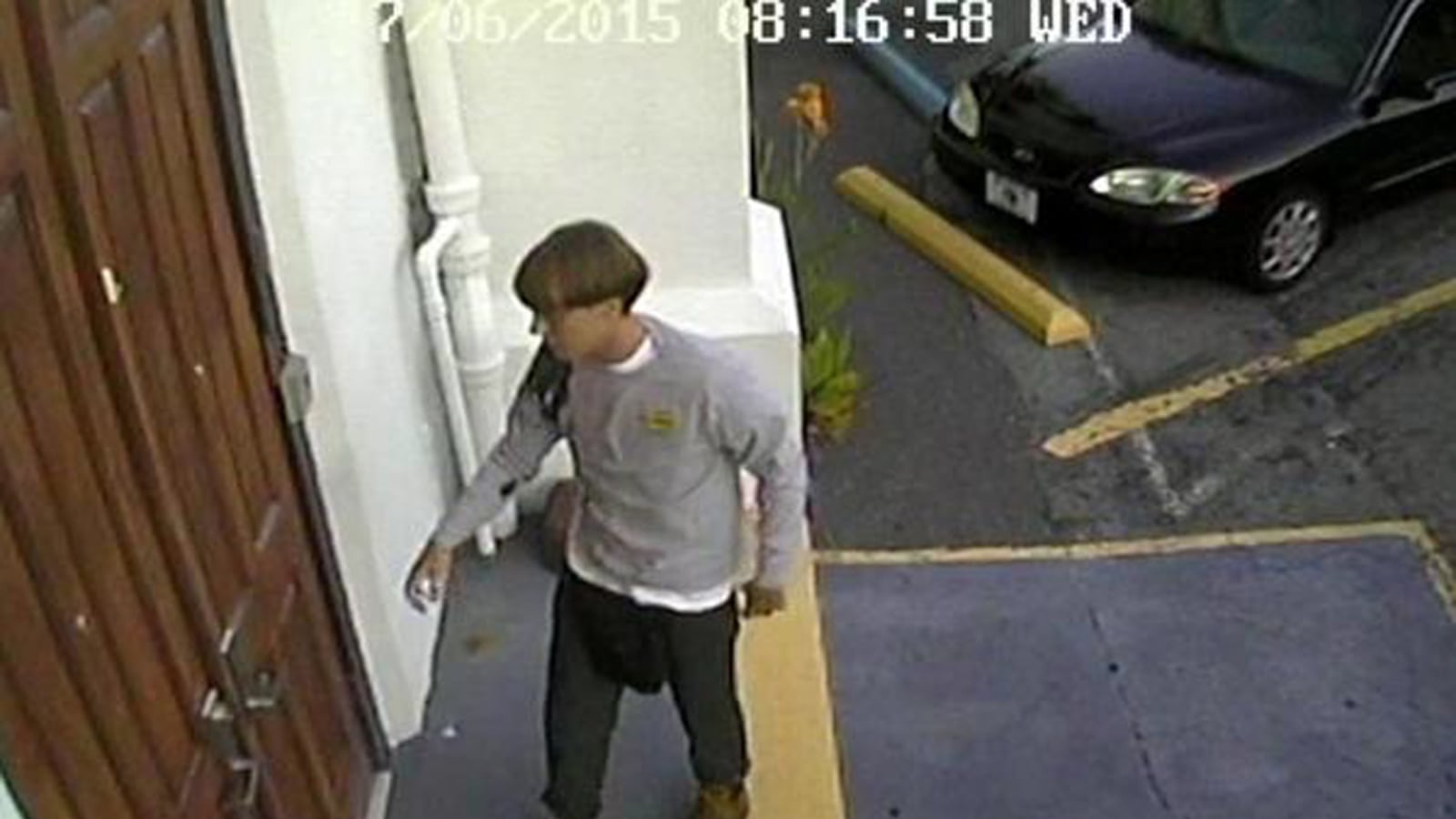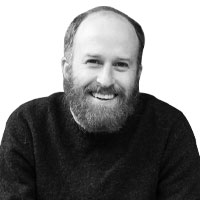A lone white shooter massacred nine people during a prayer meeting at one of the South’s most venerable black churches last night.
The shooter, a young man dressed unremarkably in a sweatshirt, jeans, and Timberlands, sat inside the church in Charleston, South Carolina, for about an hour alongside his intended targets before opening fire.

At around 9 p.m. ET, after reportedly telling one member of the congregation that he was sparing her so that she could spread word of his heinous attack, he fled into the night.
FBI officers suspect that man was Dylann Roof, 21, from Columbia, South Carolina. His uncle told Reuters that he recognized his nephew when he saw the surveillance photo of the wanted man. “The more I look at him, the more I’m convinced, that’s him,” said Carson Cowles.
His uncle said Roof was given a .45-caliber pistol by his father for his 21st birthday in April.
Three men and six women were slain by the gunman at the Emanuel African Methodist Episcopal Church on Charleston’s Calhoun Street. Police said there were three survivors.
Within hours of the crime, police said they believed they were dealing with a hate crime.
Among the dead was Rev. Clementa C. Pinckney, 41, a respected community leader with a bright future in the church. His former mentor told The Daily Beast that his murder will deepen racial tensions in a community that is still splintered more than 154 years after South Carolina declared that it would secede from the Union to defend slavery.
“His loss is an incalculable loss for our church and for the state,” said Joseph Darby, the presiding elder of the 32 AME churches in the southern part of the state. “He was a caring pastor, a progressive advocate, and a very nice guy, with a wife and two daughters. A very down-to-earth, good person.”
Although distinctions are made between such killings and “terrorism,” for the sake of comparison one may note that in the 2013 Boston Marathon bombing, while many were badly injured, three people were killed by two improvised explosive devices. In Charleston, one man with what appears to have been one gun killed three times that many.
If a white supremacist proves to have been behind this attack, it will have been one of the most horrific in civil-rights history, coming 52 years after the Ku Klux Klan detonated explosives at a black church in Birmingham, Alabama, killing four girls.
Darby, a former pastor of the Morris Brown AME Church a few blocks from the shooting, said police were increasing security at all of his churches but insisted that they would remain open despite fears of further attacks. “Hopefully there will be no more, but nobody is closing down church. They have tried to engage in that kind of racist terrorism since the beginning of America. It hasn’t worked yet, and it won’t work now,” he said. “People play divisive political games to stir up racists because sometimes that means they go to the polls to vote; sometimes folks that are less able take up a gun and do something stupid.”
Sylvia Johnson, a cousin of the slain pastor, told MSNBC that she had spoken to one of the survivors who said the gunman had reloaded five times during the attack. When they tried to talk him into putting the gun down, she said: “He just said, ‘I have to do it. You rape our women and you’re taking over our country.”
Charleston Police Chief Greg Mullen said the full might of the America’s law enforcement would do “whatever we have to do” to catch the suspect. “From the time this call came in, we have resources coming from all over the East Coast,” he said during a press conference Thursday morning. But the gunman is still at large and still considered extremely dangerous.
Racial tensions were heightened in the region after a white North Charleston policeman was filmed shooting and killing Walter Scott, a black man, who was running away from him in April.
GALLERY: Charleston Church Shooting Aftermath (PHOTOS)

Reporters for Charleston’s Post and Courier captured some of the emotion in the streets. “I’m lost, I’m lost,” John Quil Lance told one of them:
“‘Granny was the heart of the family.’ He said his grandmother had worked at the church for more than 30 years. ‘She’s a Christian, hardworking; I could call my granny for anything. I don’t have anyone else like that.’ He said he didn’t know her condition. ‘I don’t even know if she’s alive now.’ He threw his hands up. ‘I don’t even know if my grandmother is alive.’ He paced up and down Ashley Avenue, and his thoughts gathered momentum. ‘What was this guy thinking? That dude shot a bunch of elderly people! Now people are going to be afraid to go to church. I don’t know what’s going to come of this. I’ll tell you this, I’m not the only one praying tonight.’ At 12:45 a.m., as word spread about the deaths, Lance fell to the ground and sobbed. ‘Somebody better get that [expletive].’”
Eight people were killed inside the church and another victim died in an ambulance on the way to the hospital.
For Charleston Mayor Joe Riley, the horror of Wednesday night began to unfold when he heard his landline phone ringing. His gut told him right away there was a problem.
He picked up the receiver to find city Police Chief Greg Mullen on the line.
“How are you?” asked the mayor.
“Very bad,” said the chief.
Riley soon learned of the nightmare that taken hold of downtown Charleston. He changed into a coat and tie and headed toward the church, ultimately joining family members of the victims at a nearby hotel. There, he says, people were “weeping and holding each other, praying.”
“It was a very heartbreaking experience,” said the mayor. “The most inventive novelist couldn’t come up with something that deranged… It shows a hateful and deranged mind.”
Riley, a Democrat who has been mayor since 1975, said last night’s church shooting would motivate him to renew his call for stricter gun laws.
“This is just a very tragic and heartbreaking example of why this is needed,” he said.
South Carolina State Representative Wendell Gilliard, a friend of Pastor Pinckney, said the loss of his colleague must become a moment to inspire gun-control reforms.
“We should not go around insisting on being able to carry guns in every place,” said Gilliard. “You know what we should be armed with?” he asked. “Dignity, respect, and love for all mankind.”








